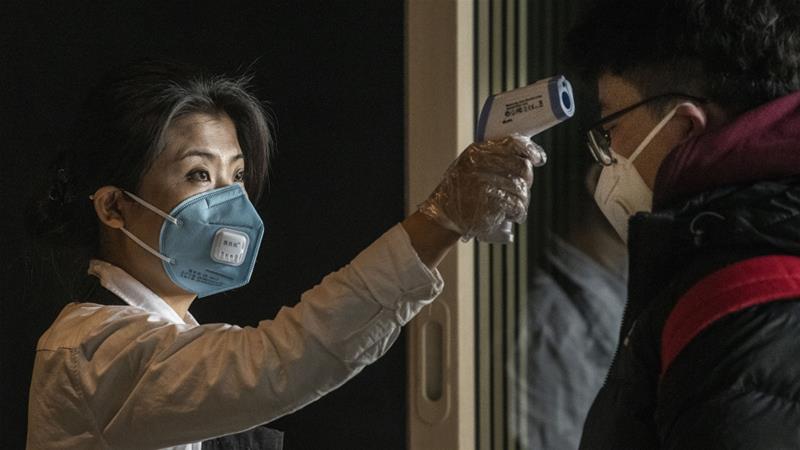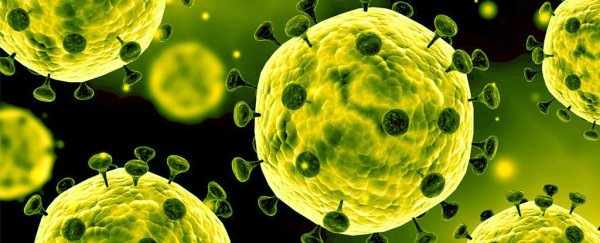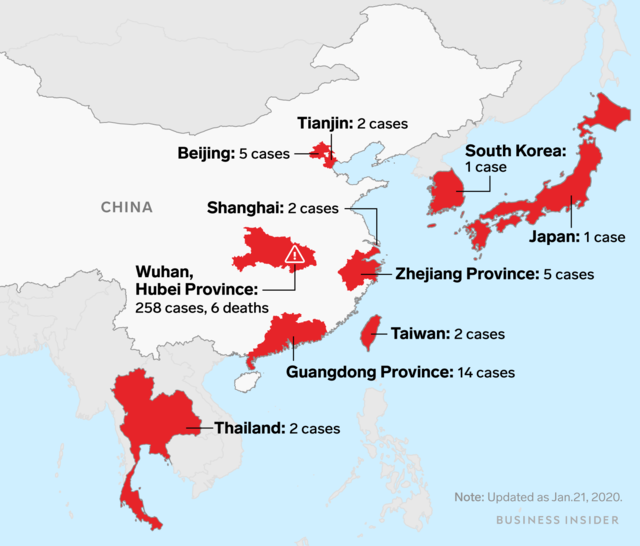Here's how to protect yourself while traveling.

The United States reported on Tuesday its first fatal
coronavirus case from Wuhan, China.
Hundreds of millions of people are expected to travel to
China for the Lunar New Year, which increases the risk of its spread. It can be
transmitted between humans.
Health experts recommend a few precautions to protect you
while on the go.
Visit the Business Insider home page for more stories.
Two weeks ago, Chinese medical authorities reported a
mysterious new coronavirus in Wuhan, the most populous city in central China.
The first case was reported in the United States on Tuesday.
So far, the virus has infected about 300 people and killed six.
At first, the authorities suspected that the coronavirus,
probably originating from a seafood market, could not spread from animals to
humans. But they have since confirmed that humans can spread the virus.
The coronavirus family is a large group of viruses that
generally affect the airways. Coronaviruses can cause illnesses like the common
cold, pneumonia, and severe acute respiratory syndrome (SARS), a
life-threatening disease that caused 8,000 cases and 774 deaths in China between
November 2002 and July 2003.
The timing of the new epidemic is particularly worrying, as
hundreds of millions of people are expected to travel to China for the Lunar
New Year, which begins on Saturday and lasts until February 8.
"Travel spreads this type of virus like wildfire,"
Adrian Hyzler, medical director of Healix International, which offers risk
management solutions to international travelers, told Business Insider. "I
think we're going to see cases popping up in cities around the world."
Here's how to stay safe in flight.
Before the Wuhan virus reached the US, it had already started to spread across Asia.
South Korea, Japan and Taiwan each have one confirmed case
and two cases have been reported from Thailand.
On Tuesday, the Centers for Disease Control (CDC) announced
that a man in his thirties who lives in Snohomish County, north of Seattle,
Washington, has contracted the virus. The man had recently returned from a trip
to China and is now in good health.
"I think it is commendable that the Chinese authorities
identified this quickly," said Hyzler. "There seems to be good
information sharing."
Passengers traveling to the US from Wuhan will be rerouted to one of five airports.

The CDC announced Tuesday that five US airports, John F.
Kennedy International Airport in New York, San Francisco International Airport,
Los Angeles International Airport, Hartsfield-Jackson Atlanta International
Airport and l Chicago O'Hare International Airport will begin screening
passengers for the virus.
Hong Kong, Singapore, Thailand and South Korea airports also
control passenger fever.
"Screening is a very imperfect tool, but it is the only
tool we have to try to prevent the importation of a disease," Eric Toner,
senior scientist at Johns Hopkins University, told Business Insider.
Travelers should avoid close contact with people who are sick particularly those with cold symptoms.
 Some people who have contracted Wuhan virus have reported
symptoms such as fever, chills, headache and sore throat. A few said they had
difficulty breathing.
Some people who have contracted Wuhan virus have reported
symptoms such as fever, chills, headache and sore throat. A few said they had
difficulty breathing.
Travelers should try to avoid contact with people who have
symptoms similar to pneumonia or the common cold, such as a cough or a runny
nose.
"What we don't know is how far this disease can be
transmitted by people who are only mildly ill," said Toner. "This is
one of the things we are trying to understand right now."
Wearing a mask isn't particularly helpful, Toner said.
Many people in China lined up to buy face masks, which have
reportedly started to sell in some stores. But Toner doesn't think a mask will
do much to protect anyone's health.
"There is little harm," he said. "But wearing
masks, except in the case of a healthcare professional, has never been shown to
be a very effective way to protect yourself from infectious diseases."
The CDC warns travelers not to touching their eyes, nose, or mouth with unwashed hands.

Travelers should wash their hands frequently with soap and
water, making sure to scrub for at least 20 seconds, according to the CDC. There
is no vaccine to protect humans from contracting a coronavirus.
"There is no cure for this virus," said Hyzler.
"If there is a vaccine, it will take years."
If you're traveling to China, steer clear of live animals.
Although scientists have traced the Wuhan virus to a local
seafood market with live animals, they do not yet know which animal has spread
the virus to humans.
Recent research suggests that the SARS virus in China could
spread to humans from horseshoe bats.
"Since SARS, there have been calls to improve or close
the live animal markets in China," said Toner. "There are a lot of
things we don't know yet, but it's fair to say that live animal markets are a
threat not only to the people who work there, but to public health in
general."
If you do become ill after traveling to China, report your symptoms to a health authority right away.
Toner said sick people who have recently visited China
should talk to their doctor about their travel history.
But restricting travel to areas that already have virus
cases is unlikely to be effective, he added.
"I think they are doing the right things," he said
of the Chinese government's response. "They check patients or arriving
passengers. They try to educate them to make sure they are receiving care. They
try to isolate them as soon as they start to get sick. These are things that
prevent transmission."


















0 Comments